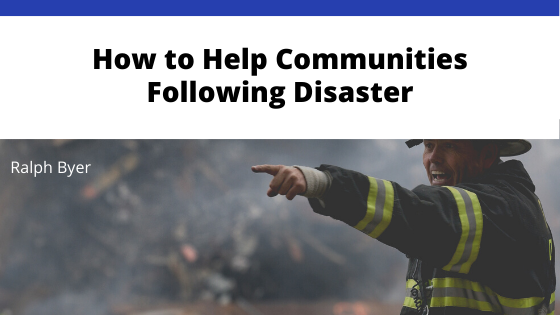Whenever a natural disaster strikes a community, the first priority for first responders is the health of those affected. Response teams then take other aspects of well-being into account, like food and shelter, in what amounts to a scaling of Maslow’s hierarchy of needs. These initial measures are, of course, understandable and necessary, for they are what keep people alive in the immediate aftermath of the disaster.
Studies have proven, however, that there are other steps that should be taken with a view toward the long-term future of the community. By taking immediate action to promote the recovery of the economy and make the community more resilient to future disasters, first responders can have a lasting impact.
After disaster strikes, it is common for aid organizations to focus on feeding and sheltering the people, without much concern for the local economy. This might seem like sound policy, seeing as the well-being of the people is the most important thing in the immediate aftermath. In reality, however, this myopic attitude can make it harder for the community to move on from the disaster down the road.
Instead of dishing out meals, aid organizations should consider giving cash payments to local residents so that they can buy their own food. That way, they are not only putting food on the table, but they are also contributing to the rebuilding of the local economy by providing payment to another person who can then use that money for their own food and shelter.
Organizations should also consider making donations to small businesses, especially those that survive day to day or week to week. Keeping local fruit-sellers and shopkeepers afloat will allow community life to return to normal as quickly as possible.
First responders should also use the period of disaster relief as an opportunity to assess what can be done to make the community more resilient in the face of future natural disasters. In an area prone to drought, for example, aid groups can make note of what would have helped people be better prepared for the situation. Then, they can do what they can to improve future preparedness, whether that entails improved access to meteorological forecasts or opportunities for bank loans.
